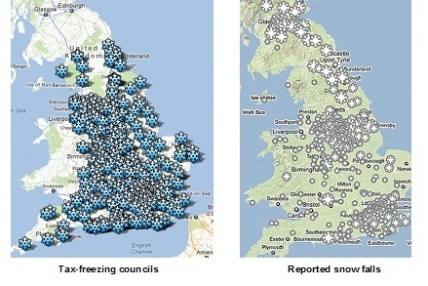Dr. Karin Bottom
Last week, ten English cities voted on whether to alter the dynamics of leadership in their authorities and replace the current leader and cabinet formula with that of elected mayor, deputy and cabinet. The rejection was almost unanimous, only Bristol registered a yes vote – but with a majority of less than seven per cent – and more than 60% of voters in Coventry, Leeds, Newcastle, Sheffield and Wakefield prioritised the status quo above change. To some this outcome was a surprise, yet polls prior to the referenda were inconclusive at best and taken in conjunction with the uncertainty surrounding elected mayors, it is hardly surprising that the majority of the electorate chose to stay at home or vote no, average turnout being recorded at a particularly low 32 per cent.
With a focus on what the office of mayor could do to regenerate cities and enhance local democracy, ‘yes’ campaigns were beset with problems from the start, not least for the reason that pre election, the role of the elected mayor was to be broadly similar to that of council leader: specifics were to be negotiated after taking office and worryingly for some, a substantial amount of the role’s leverage would be the product of personality and an ability to maximise what are often termed as ‘soft’ powers. Compounding these factors, the office’s confinement to cities – as opposed to regions – suggested that capacity for real change was somewhat more limited than proponents suggested.
Analysis in the aftermath of the referenda suggests that a number of factors contributed to the ‘no’ votes but it is clear that the overriding sentiments within the electorate were uncertainty and confusion. Voters were unsure about what they were being asked to endorse or reject and some argue that this explains why the ‘no’ campaigns were particularly successful at tapping into and harnessing public sentiment. Taken in the context of austerity, ongoing public service cuts and a generalised dissatisfaction with the political class, it is easy to speculate and suggest that the electorate was unenthusiastic about electing more politicians, especially when the nature of the role was unclear and guidelines for removing poorly performing mayors were minimal to say the very least: to many the office seemed nothing other than a risky and unnecessary expense.
Yet, the results on May 3rd should not shut down discussion on local political leadership. The mayoral model may have been rejected but the issue has not gone away; arguments for stronger more visible city leadership persist and the government has made it clear that it now sees the move towards elected mayors as incremental, cumulative and progressive: in this sense the debate continues. Yet, now it might be useful to shift the focus somewhat and think about how leadership can be nurtured and maximised in the 339 non mayoral authorities in England because there is nothing to suggest that the qualities which comprise strong leadership sit only within the purview of an elected mayor. While Joe Anderson and Ian Stewart take up their new mayoral posts in Liverpool and Salford, they do so alongside 124 other English authorities which also underwent some form of political reconfiguration last week: it will be interesting to see whether the issues which catalysed the mayoral referenda will impact on future leadership dynamics in those local authorities.
Karin Bottom is Lecturer in British Politics and Research Methods at INLOGOV, University of Birmingham. Her core research areas comprise parties (particularly small and the BNP), party systems and party theory. She is particularly interested in concepts of relevance and how national level theories can be utilised at the sub-national level.





